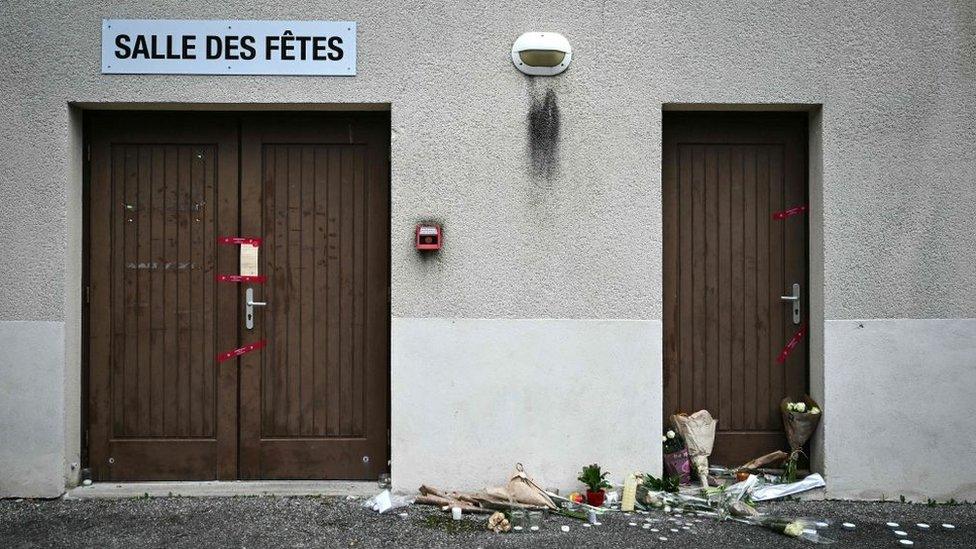Cr茅pol murder: French pledge to tackle ultra-right after teen killing sparks protests
- Published

Flowers outside the hall where a 16 year-old was murdered on 19 November
French Interior Minister G茅rald Darmanin says he is going to propose a ban on small ultra-right groups, in response to a series of violent protests over the murder of a schoolboy at a village dance.
The 16-year-old, called Thomas, was fatally stabbed when fighting broke out at the dance in Cr茅pol on 18 November.
Prosecutors say nine suspects have been placed under formal investigation.
But extreme-right activists have seized on the boy's death.
On a visit to Cr茅pol, a village of around 500 people in the Dr么me area of south-eastern France, government spokesman Olivier V茅ran made an appeal to people "not to answer violence with violence" and warned that society was at risk of "tipping over".
Prosecutors say the circumstances surrounding the teenager's killing are unclear and have advised against jumping to hasty conclusions.
Reports say an argument inside Cr茅pol village hall led to a brawl outside as more young people arrived at the scene in one or two cars.
Thomas, a keen rugby player, was mourned by 2,000 people and a minute's silence was held at the weekend at French rugby games.
Far-right politicians alleged a racial motive to the crime which has not been confirmed. But last weekend extremist groups took to the streets in Romans-sur-Is猫re, 16km (10 miles) south of Cr茅pol, where they claimed some of the suspects lived.
Authorities said the protesters had come to commit violence against local residents and police officers.
Six young men have already been sentenced in connection with the riots, with fast-track jail terms of between six and 10 months.
Interior Minister G茅rald Darmanin said on Tuesday that he would propose a ban on three small ultra-right groups linked to the violence.
He added that extremist militias "seek to attack Arabs, people with different skin colours, speak of their nostalgia for the Third Reich". Thirteen far-right terror plots had been foiled by authorities since 2017, he said.
Prime Minister Elisabeth Borne said politicians using the murder to "play on fears" showed a lack of respect for the victim.
Related topics
- Published30 June 2023
- Published30 June 2023